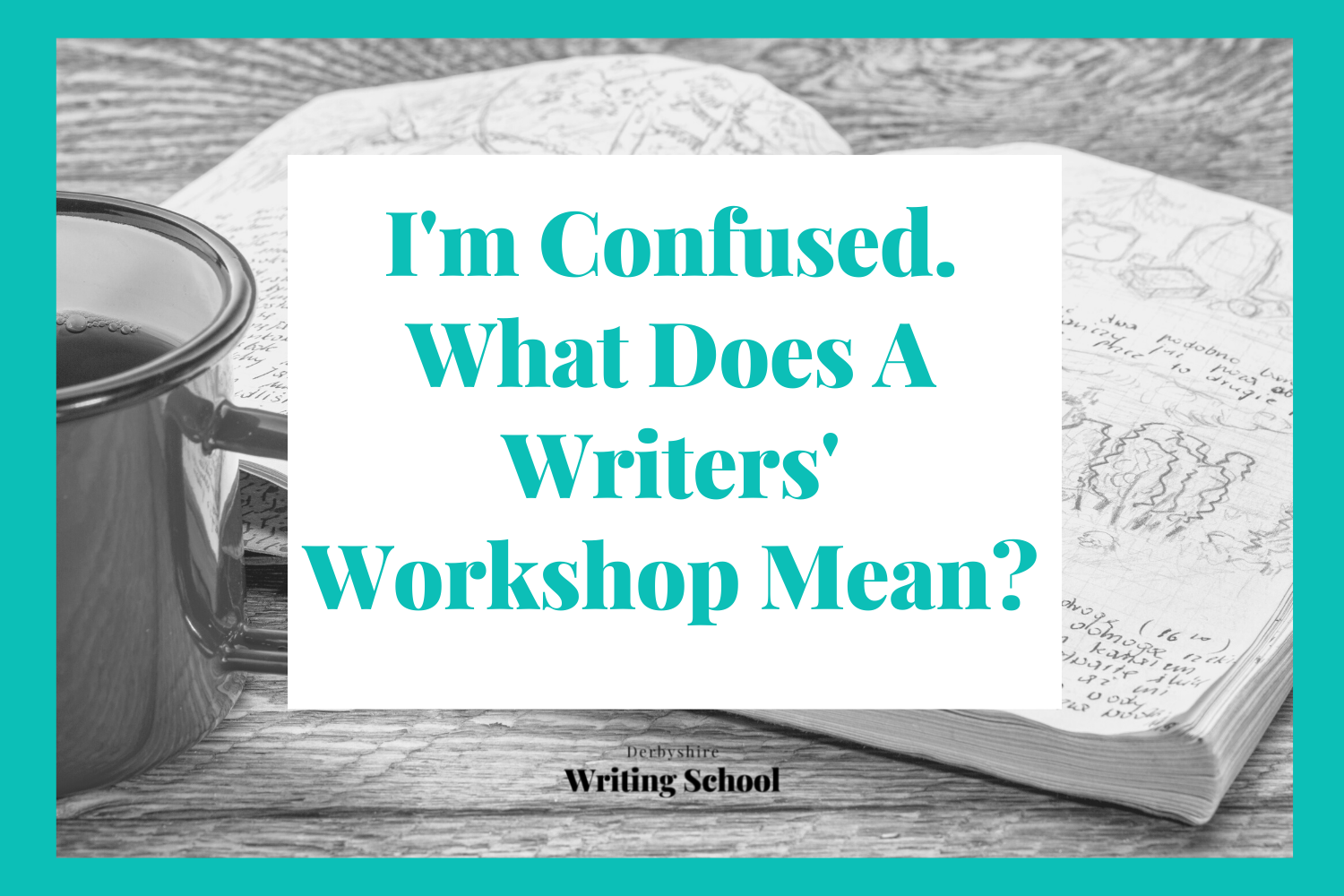I'm Confused. What Does A Writers Workshop Mean?
Have you always dabbled with stories? Do you find your mind is full of ideas before you go to bed? Have you penned the next best seller but you’re terrified of sharing it with anyone? A writing workshop or a writing group could help.
I’m sure you’ve heard of people talking about writing workshops or having their writing ‘workshopped’, but what does it actually mean? And how can it help us develop our written work?
What Is A Writing Workshop?
A writing workshop is an age-old technique for developing pieces of creative writing. In its simplest form, it can be described as a group of writers that meet together to develop written work by giving feedback and comments.
To add to the confusion, sometimes taught sessions on writing can be called a writing workshop. This is because it takes some similar elements from the traditional writing workshop – such as sharing work. It’s also important to double-check what type of writing workshop you’re planning to attend.
How Does A Writing Workshop Run?
Typically, a group of writers would set up a local writing workshop or writing group. Someone would take the lead in organising and running the group, but it’s usually quite relaxed and informal. Each week, attendees would share a chapter or an agreed word count with every group member prior to the workshop taking place. Each attendee would be expected to read the creative pieces shared and make notes.
The writing workshop is then focused on the people who attend, and the projects they are working on. The group would take turns sharing their thoughts and notes on each attendee’s work. Providing constructive feedback and positive support.
Writers learn and develop their craft from the workshop, as it forces them to write often and share their work weekly with writing peers. This is much easier said than done!
What Is The Aim Of a Writing Workshop?
The accountability and routine that’s created from a writing workshop is one of the most positive outcomes of the process, and it should help writers develop a steady writing habit. It’s amazing how quickly you can sink into a routine with a committed group of writers.
Another aim of the writing workshop is to build a community. To create a support network, to help give writers the confidence to showcase their work and shape it into the best format it can possibly be, based on the feedback and advice from the other writers in the group. As writers, we learn to write by writing, and the more we write, the better we get.
The writing workshop is a tool used by almost all authors to help develop their creative practice. It should not only help you write with more clarity but also teach you to read more closely. As writers, it is important to read around the genre, we write in and read all texts with precision. If we can zoom in on the details of other people’s work, it can help us reflect on our own with more clarity. As give feedback to others, we also learn ourselves.
Why Is A Writing Workshop Useful For People Who Want To Write?
A writing workshop is one of the most powerful tools in a writer’s toolbox. It creates a safe space for discussing, sharing, and developing work. The community that is built as a result of the workshop can help encourage and motivate new and more experienced writers to keep going.
The workshop is useful for gaining detailed and constructive feedback, and elevating your writing to the highest level. As writers, we can often become too close to our work to see the errors and the areas that need development. A workshop environment can help us zoom out and see our work with fresh eyes.
The writing workshop is useful for writers, as it allows us to spend time with similar people. People with similar goals and similar dreams and people who love books.
The Power Of Feedback
“Feedback is the breakfast of champions.” Ken Blanchard.
We all need feedback to improve. The writing workshop should be a constructive space to give and receive feedback. Writers need feedback to develop their work and to check the story arc and character developments are working, to develop voice and craft. When attending a writing workshop, it’s important to set clear boundaries and parameters for all the discussions.
Feedback should be specific and rigorous. It’s important to carve out enough time to read each attendee’s work. It’s noticeable if work has been skim-read and feedback is vague.
Sometimes feedback can be difficult to take on board, but you don’t have to take all the suggestions that are offered. It is important to listen and reflect on the ideas shared but decide carefully if you want to proceed with any changes.
How Can Derbyshire Writing School Help
Writing workshops are not for everyone. They can feel intimidating and can cause long-lasting damage to confidence if they aren’t carefully managed. This is why our Finish Your Book group programme is a safe, well-managed place for you to get feedback.
We want to see your book on the shelves! Take the time, and the action needed, to finally finish your first draft.
Starting a book can be great fun, but finishing it can feel hard, especially when you’re writing on your own. Our ‘Finish Your Book’ group programme can help. Giving you time to write. Gaining feedback on your writing. Setting goals. Learning how to edit. And doing all of this as part of a small, dedicated group of writers.
This is an online programme delivered live via Zoom.
At Derbyshire Writing School, we run courses, workshops, and retreats to help you develop your work. We are planning some exciting writing workshops centred around the critique and development of your creative work and events that simply celebrate time to write. To find out more, sign up for our monthly newsletter.
Writing teaches writing. But it’s also important that you surround yourself with the right people. The writing workshop can be a supportive, creative environment for those writers looking to take their work to the next level. If you’d like to attend a writers’ workshop in Derbyshire, complete this form and let us know.












